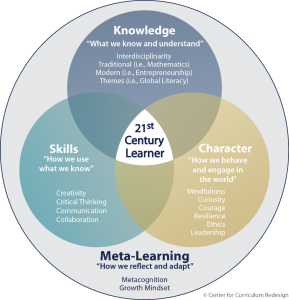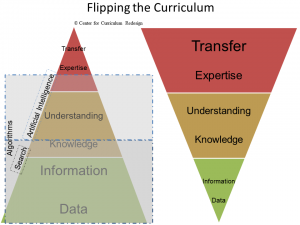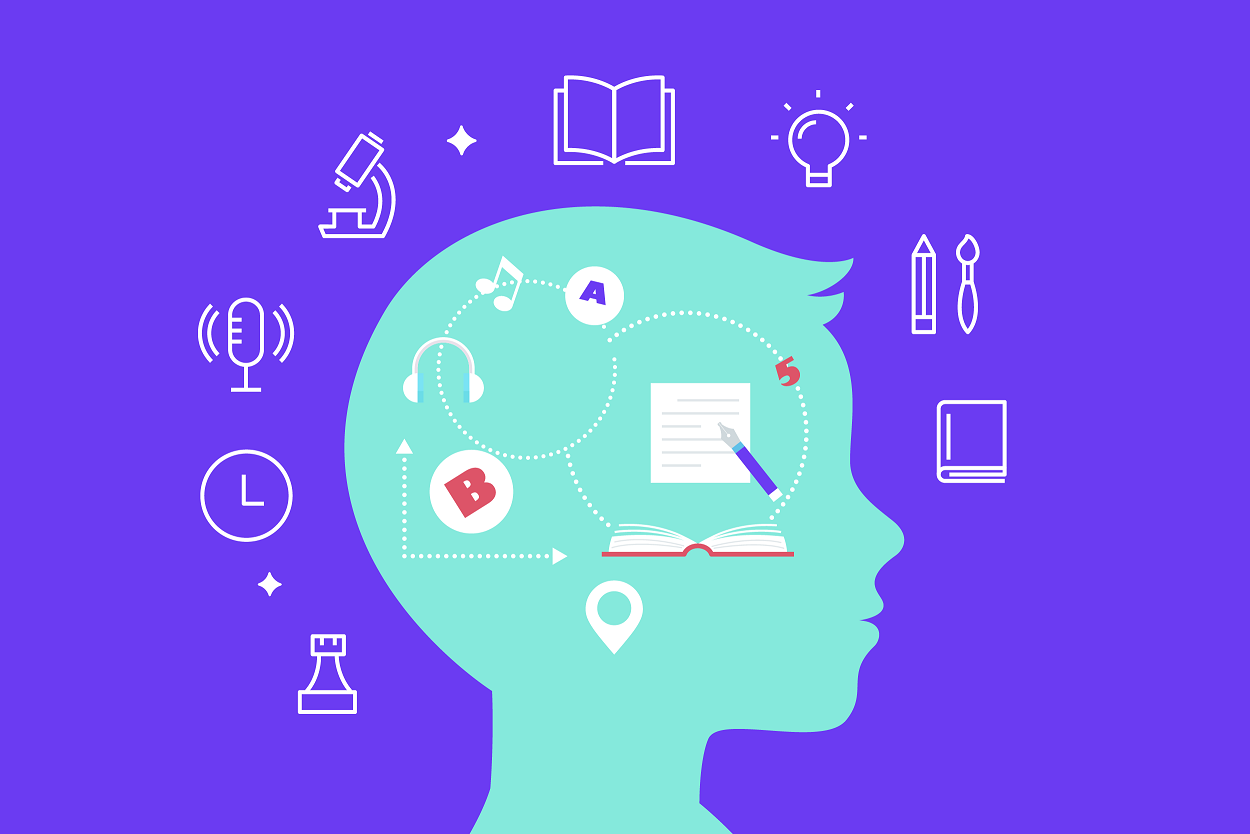Incorporating 21st -Century Skills in Education
The Next big Thing for Pakistan
At a time when the Covid-19 pandemic has rattled every country with its long-lasting, deleterious impact, it is obvious that our rapidly-changing world is faced with increasingly complex global challenges. Climate change, migrant crisis and epidemics and pandemics are some daunting challenges that require creative collaboration across borders. Covid-19 has highlighted the concept of interdependence of countries and brought to light how state institutions are largely dependent on skilled labour for smooth running. This also manifests that today’s citizen needs a wide range of competencies to navigate the changing world. These competencies include, but are, certainly, not limited to, critical thinking, communication, collaboration, resilience and metacognition.
Education systems around the world are increasingly recognizing the need to teach their students a new set of competencies beyond traditional disciplines such as mathematics, science and reading. In order to be successful in learning, life, and work, students must master 21st-century skills like creativity and critical thinking, social-emotional learning characteristics like curiosity and resilience, and meta-learning abilities, often described as “learning to learn.”
Gone are the days when rote-learning individuals would occupy top positions in the government and private sectors. The future jobs now demand a league of labour that has skills and innovation in them. This brings a heavy responsibility on the shoulders of the teachers as they will be more responsible, now, for a student’s overall development; placing the foundation for lifelong progress. It is up to them to use the difficult conditions caused by the Covid-19 pandemic to take the next step forward and develop their capacity in imparting 21st-century skills to their students.
According to experts, 21st-century skills are 12 capabilities that today’s students need to succeed in their careers during the contemporary information age: critical thinking, creativity, collaboration, communication, information literacy, media literacy, technology literacy, flexibility, leadership, initiative, productivity and social skills.
These skills are proposed to help students keep up with the speedy pace of today’s modern markets. Each skill is unique in helping students but all these competencies have one quality in common, their indispensable role in the age of information technology.
There are three categories that 21st-century skills fall into: learning skills, literacy skills and life skills.
FOUR C’ of the 21st Century
- Critical Thinking
Critical thinking is the capability of an individual to analyze, interpret and evaluate information. More broadly, it is an intellectual process of conceptualizing, evaluating, analyzing and synthesizing the gathered information from observation, reasoning, experience and reflection. It is a skill to be learned but it cannot be inculcated in the learners by their peers or parents. Well-trained and knowledgeable teachers are indispensable for the transmission of critical thinking skill to students. The skill of critical thinking is important and crucial because it can be used in the workplace; it also helps the individual to deal with spiritual and mental questions. Furthermore, it can be used to evaluate people, institutions, and policies to avoid social problems.
- Creativity
In today’s environment, where students interact with the existing media and technologies in everyday experiences, creativity and innovation skills have gained an important role in contemporary society for creation of new knowledge. Creativity is the ability of individuals to create novel and valuable ideas or thoughts, and to analyze, polish and assess their own or existing ideas to increase creative efforts. The skill of creativity enables an individual to think at his own, identify and solve crucial problems. The Jobs of the 21st century will need such workers who have the ability of flexibility, adaptability, innovation and creativity.
- Collaboration
Collaboration refers to the aptitude of a learner to work efficiently in diverse teams, making essential compromises to achieve a common goal, implement shared obligation for collaborative task, and acknowledge the individual assistance made by each and every member of the team. This skill can be learned through working in groups of individuals in well-planned programmes and tasks. There is no degree (qualification) in any particular area of the study that guarantee for job employment, however, it is the collaborative work or team work that enables the individual to discover and solve problems.
- Communication
Dealing with the multicultural population in today’s diverse and globalized world, communication is playing a very crucial role in making people work together across the world. It enables the individuals to articulate and convey ideas by using oral, written, as well as non-verbal languages. Effective communication of important ideas between the colleagues and co-workers can be integrated into core courses of the institutions. Multiculturalism and diversity of the world demand for the usefulness and effectiveness of the communicative and collaboration skills.
Learning skills come under the first category and are also known as four C’s i.e. critical thinking, creativity, a collaboration and communication which teach students about the mental processes required to adapt and improve upon a modern work environment. 4Cs are taken as the heart and soul of teaching 21st-century skills as these are more recognisable in those students who are in post-secondary education and career settings.
Critical thinking is the mechanism that weeds out problems and replaces them with fruitful solutions and trains students to think critically without the support of teachers and mentors. It is a known fact that critical thinking is the most in-demand and significant skill for any health sciences scholar and in upcoming business settings. It is an essential skill to indulge into employees for enhancement of practical knowledge.
Creativity is another equally important quality as a means of learning adaptation. This skill empowers students to see concepts in different ways, which leads to innovation and improved concepts. In any field of life, innovation is key to the adaptability and overall success of any human resource unit. Learning creativity as a skill requires someone to understand that “the way things have always been done” may have been best 10 years ago but someday, that has to change.
Collaboration means getting students to work together to achieve compromises and acquire the best possible results from solving a problem. Collaboration may be the most difficult concept in the four C’s. But once it’s mastered by any learner and future professional, (s)he can settle down or will be able to sort the fundamental issues of any team unit in crisis.
The key element of collaboration/teamwork is willingness. Successful teamwork happens when all members of a team are trained about methods of cooperating and work together to achieve a bigger goal by sacrificing personal likes and opinions for one solution in benefit of the entire human unit.
Finally, communication is the glue that brings all of these enlightening qualities together. Students must learn how to effectively convey ideas among different personality types and situations. Effective communication has the potential to eliminate confusion in any working environment, which educates students to convert into valuable parts of their teams, departments and professional endeavours.
Literacy skills, also known as (IMT) literacy, make the second category of 21st-century skills.
Information literacy: Understanding facts, figures, statistics, and data.
Information literacy is the foundational skill that helps students understand facts; especially, data points that they’ll encounter online. More importantly, it teaches them how to separate fact from fiction. In an age of chronic misinformation, finding truth online has become a responsibility on its own. Students must identify honesty on their own. Otherwise, they can fall prey to myths, misconceptions, and outright lies.
Media literacy: Understanding the methods and outlets in which information is published.
Media literacy is the practice of identifying publishing methods, outlets, and sources while distinguishing between the ones that are credible and the ones that aren’t. Just like the previous skill, media literacy helps find truth in a world that’s saturated with information. This is how students find trustworthy sources of information in their lives and students, who are equipped with it, can identify and differentiate which media outlets or formats to ignore. They also learn which ones to consult and follow, which is an equally important competency.
Technology literacy: Understanding the machines that make the Information Age possible.
Technology literacy goes another step further to teach students about the machines involved in the information age. As computers, cloud programming and mobile devices become more important to the world and require more people to understand these concepts in demand. Technology literacy gives students the basic information they need to understand what gadgets perform what tasks and why. Moreover, technology literacy unmasks the high-powered tools that run and facilitate today’s world. Today’s ‘Generation Alpha’ is capable to adopt this universal phenomenon more effectively and can support its evolution—might even guide its future.
The third significant category of 21st-century skills called “Life Skills “or FLIPS skills i.e. Flexibility, Leadership, Initiative, Productivity and Social Skills.
Flexibility: It is the expression of someone’s ability to adapt to changing circumstances. This is one of the most challenging qualities to learn for students because it’s based on two genuine ideas:
- Your way isn’t always the best.
- You have to know and admit when you’re wrong.
Developing flexibility is a struggle for a lot of students, it requires them to show humbleness and accept that they’ll always have a lot to learn – even when they’re experienced. Still, flexibility is crucial to a student’s long-term success in a career. Knowing when to change, how to change, and how to react to change is a skill that will pay dividends for someone’s entire life.
It also plays a big role in the next skill in this category.
Leadership: It involves someone’s abilities for setting goals, walking a team through the steps required, and achieving those goals collaboratively. Whether someone is a seasoned entrepreneur or a fresh hire just starting his/her careers, leadership applies to life and career both. As students lead individual school departments, they can learn the ins and outs of their specific assignments. That gives ambitious students the expertise they need to grow workwise and lead the whole project. Leadership alone isn’t enough to get ahead though.
Initiative: True success also requires initiative, requiring students to be self-starters. The initiative only comes naturally to a handful of people. As a result, students need to learn and practice it to fully succeed. This is, again, one of the hardest skills to learn and practice. Initiative often means working on projects outside of regular working hours. The rewards for students with extreme initiative vary from person to person. Sometimes they’re good grades.
Regardless, the initiative is an attribute that earns rewards. It’s especially indicative of someone’s character in terms of work ethic and professional progress. That goes double when the initiative is practiced with added qualities like flexibility and leadership.
Productivity: Along with initiative, 21st-century skills require students to learn about productivity. That’s a student’s ability to complete work in an appropriate amount of time and it’s called “efficiency.” The common goal of any academic mentor or workplace supervisor is to get more done in less time.
By understanding productivity strategies at every level, students discover how they work best while gaining an appreciation for how others work as well. That equips them with the practical means to carry out the ideas they determine through flexibility, leadership, and initiative. There is still one last skill that ties all other 21st-century skills together.
Social skills: These are indispensable and crucial to the ongoing success of any learner and professional. Projects and businesses are frequently done through the connections one person makes with others around them. But this concept of networking is more active in some industries than others, but proper social skills are excellent tools for building long-lasting relationships.
In today’s world, the rise of social media and instant communications have changed the nature of human interactions. As a result, today’s students are equipped with a wide range of social skills. Some are more socially skilful than others; some are far behind their peers and some lucky few may be far ahead, as socialising comes naturally to them. Teaching and learning four C’s is only the beginning of 21st-century skills as tools that can be universally applied to enhance ways of thinking, learning, working and living in the world and guide students to achieve higher leadership goals in life.
The real purpose of 21st-century education is motivated by the belief that teaching the students most relevant, useful in demand and universally applicable skills should be prioritized in schools and universities. However, due to globalization, information and knowledge are increasing at such an astronomical rate that no one can master all the information about one subject. What proven true today could be false tomorrow and jobs that students get after they graduate may not yet exist. For this reason, students need to be taught how to use and process information in the most effective manner. They need to learn adaptable skills they can apply in all areas of life. Emphasis needs be placed on understanding the concepts and on applying critical thinking to real life-based scenarios. Ability to collaborate and work in teams must be instilled as well as the use of technology, ability to conduct research and chance to learn about career opportunities. Also civic, ethical and social justice, literacy as well as humanitarianism must be part of compulsory learning skills.
Undoubtedly, Pakistan faces significant education challenges and one of them is being unable to deliver qualitative education. This could be due to lack of facilities to advance the quality of education being provided or financial inefficiency of educational budget. However, the government could sow the seeds by provision of at least free WIFI access across the country. The policymakers can focus on adoption of such education reforms that have an equity focus from the beginning. Article 25-A categorically stresses the need for equal opportunity. However it is not possible to accomplish this if the private sector educational institutes are trying to sail the 21st-century boat while the public sector institutes have not even learnt the basics of sailing. The geographic diversity, cultural and social variations can be disintegrated by shaping a uniformed education system by adoption of advance common standards of curriculum.
The 21st-century education is not a short-term agenda with the goal to streamline the provision of education at primary and secondary school level; it is an identified plan to potential contribution in economic growth with major focus on increase in number of skilled workers, improvement in professional development and to unleash creativity and innovation amongst Pakistan’s 200 million human capital. To move forward in education requires the national and provincial governments to coordinate and collaborate on instilling the prerogatives of skills based learning and goal oriented mechanism. Hence, we need to realise that new social contract is different, as only people who have knowledge and skills to negotiate constant change and reinvent themselves for new situations will only succeed.
The writer is a member of staff.
 Jahangir's World Times First Comprehensive Magazine for students/teachers of competitive exams and general readers as well.
Jahangir's World Times First Comprehensive Magazine for students/teachers of competitive exams and general readers as well.



